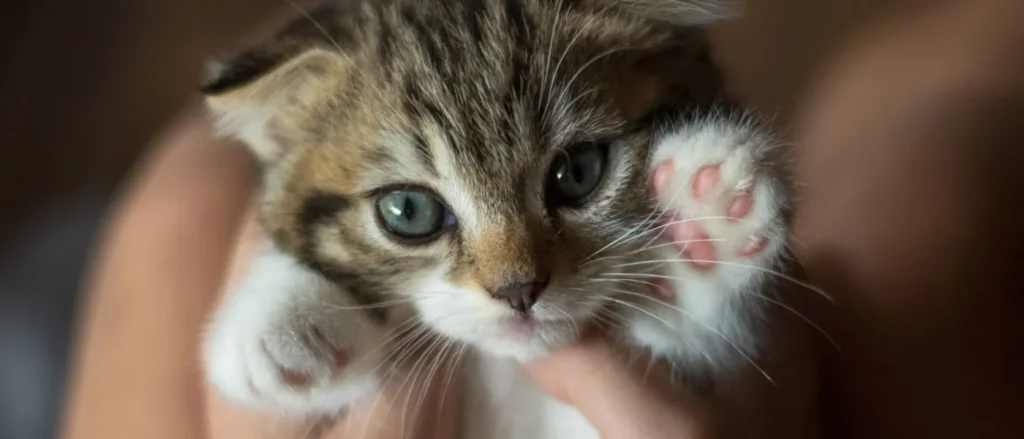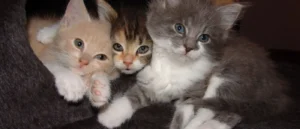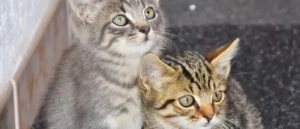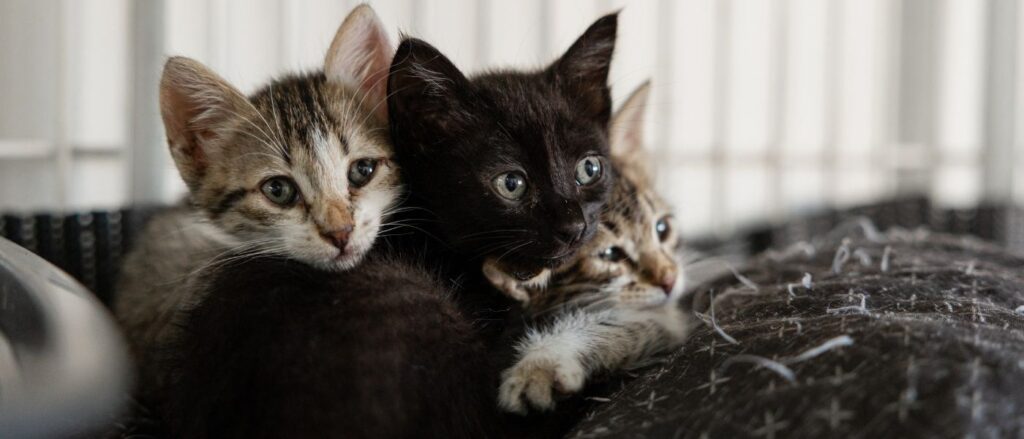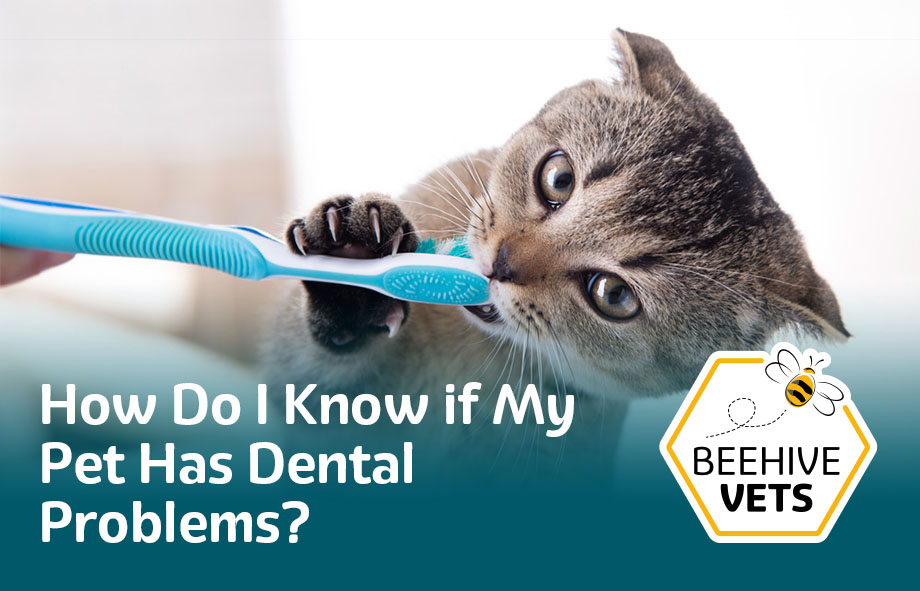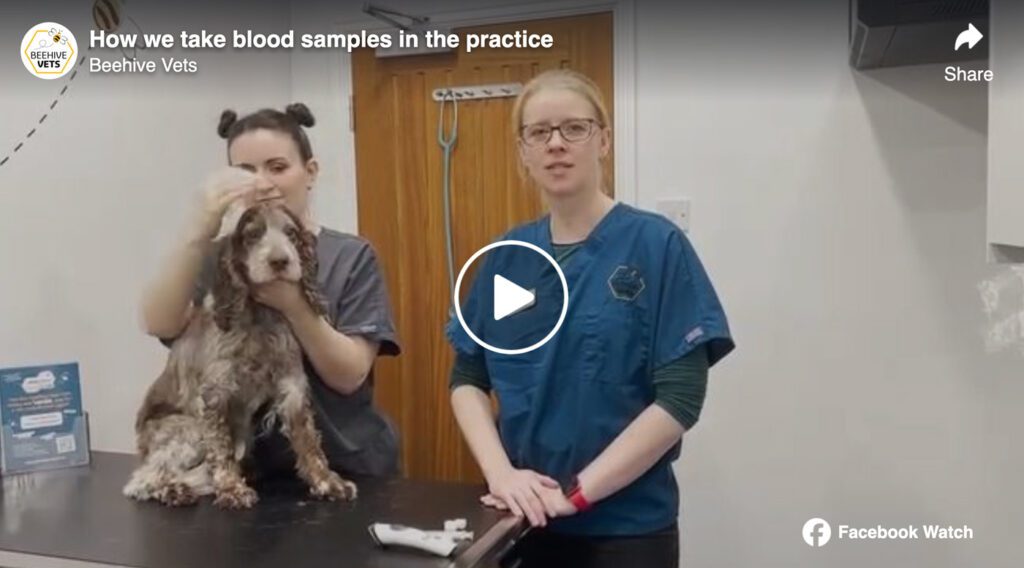Tiny kittens, and even big ones, can get very sick from having parasites. This is because parasites drink the kitten’s blood. We sometimes see dangerously anaemic kittens (kittens with not enough blood cells) as a result of having a lot of fleas or worms. It is possible for kittens to die of severe anaemia (as blood cells are needed to carry oxygen around).
How do kittens get parasites?
Kittens can catch some parasites from their mum before they’re even born. This is through the placenta. Then after they’re born, they can catch parasites through the milk they drink from their mum, and through contact, skin parasites can crawl onto them. Additionally, infected fleas transmit tapeworm larvae to kittens when they are accidentally eaten through grooming.
Parasites in kittens symptoms
To help understand kitten parasites, we will break down the main types and what to look out for.
Fleas
Fleas are surface parasites. Kittens with fleas will scratch themselves, however it can be difficult to know what level of scratching is normal in a new pet, especially if they are getting used to a new collar. Fleas jump on and off, so you don’t always see the adults. Fleas do, however, have very distinct poo. We call it “flea dirt”. This is very dark brown-red little bits of digested blood. On the bigger pieces you can appreciate it curling slightly.
Worms
Worms are internal parasites that mostly live in the intestines. A lot of worms are not seen in the poo because they stay well attached to where they’re feeding. Also, dead worms that get shed often get digested or partially digested on their way out. Things you’re more likely to notice is your kitten not maintaining a healthy body condition while they’re growing (i.e. being a bit too skinny). Your veterinarian may be able to notice a very round feeling to their belly, common in high worm burdens.
Ticks
Ticks are slow moving external parasites common in grasslands where there are sheep or deer. When ticks feed, they bury their heads into the skin, meaning removing them requires twisting with a special tool to get the full head out. There are no symptoms with the tick itself, apart from seeing or feeling it. It can stay attached for numerous days. Some ticks are infected with Borrelia, meaning they spread Lymes disease. We advise getting your pet to a vet to have their tick(s) removed as soon as possible.
Mites
Mites are surface (skin) parasites, although some burrow into deeper skin layers. There are many types of mites, but the one we most commonly see in kittens is Otodectes (ear mites). Your kitten will likely have thick dark brown ear wax and scratch their ears a lot. Otodectes can be very difficult to full clear and is very contagious to other cats, so we recommend seeing your veterinarian as soon as possible.
Preventing parasites in kittens
This comes down to regular preventive treatment with effective flea, tick, mite and worm products. Many non-prescription treatments are not very effective so we can advise you of the best product and frequency for your pet.
Treatment
Your kitten’s vaccination course involves two injections 3-4 weeks apart, which can be started at 8-9 weeks of age. This usually times quite well for being big enough to start on general flea and worm treatments. If they’re very small, we may need to do this at the 2nd injection. However, if they evidently have fleas, there are some products we can recommend that are safe for very tiny kittens.
Preventative treatment is a lot easier than trying to get on top of a stubborn household infestation, especially with fleas. If you have a multi-pet household, it’s important to remember that they will infect each other, so do keep them all up to date.
Regular veterinary health check-ups
Regular check-ups with your vet can help to spot signs of parasites that your eye might not yet be trained to. Your vet can also check for signs of anaemia and give you good advice on the risk factors and treatments for the various kinds of parasites.
Clean environment
As most parasites will shed (eg eggs) into the surroundings, general hoovering, mopping and keeping food bowls, litter trays, crates and beds clean will help to reduce the risk of a parasite infestation, or help in resolving one. Once a flea infestation has taken hold, we can recommend products and treatment schedules to rid them from the house. Please contact us if you are concerned that this may have happened to you as ineffective products or incorrect schedules can lead to months of misery for everyone living in the house.
Something that’s not typically thought of as a parasite, but in rare circumstances can be, is the maggots from blowfly eggs. Blowflies may make their way into the home and lay eggs in the skin of any pet who is soiled (with faeces or urine). These eggs then hatch into maggots who feed on flesh directly. So, it is incredibly important that any faeces or urine on your kitten is cleaned off, and their fur gently dried. This is particularly a risk for rabbit during the warmer months.
Tailored veterinary treatment
Different parasites require different treatments, are available in different forms (liquids, tablets, spot-ons), and last different lengths of time. Speaking directly with your vet is the best way to ensure a plan that works best for your kitten.
Start strong, stay protected
Parasites might be tiny, but their impact on a kitten’s health can be huge. We’ve talked already about the potential of them causing anaemia. Another very serious issue that can be caused, specifically by having lots of worms in the intestines, is a condition called “an intussusception”. This is very serious condition that caused blockage of the intestines and requires surgery.
Are you worried about kitten parasites?
If you have any concerns you would like to discuss or would like to see one of our vets then please get in touch with our team on 0113 824 2700 and we will do our best to help.
